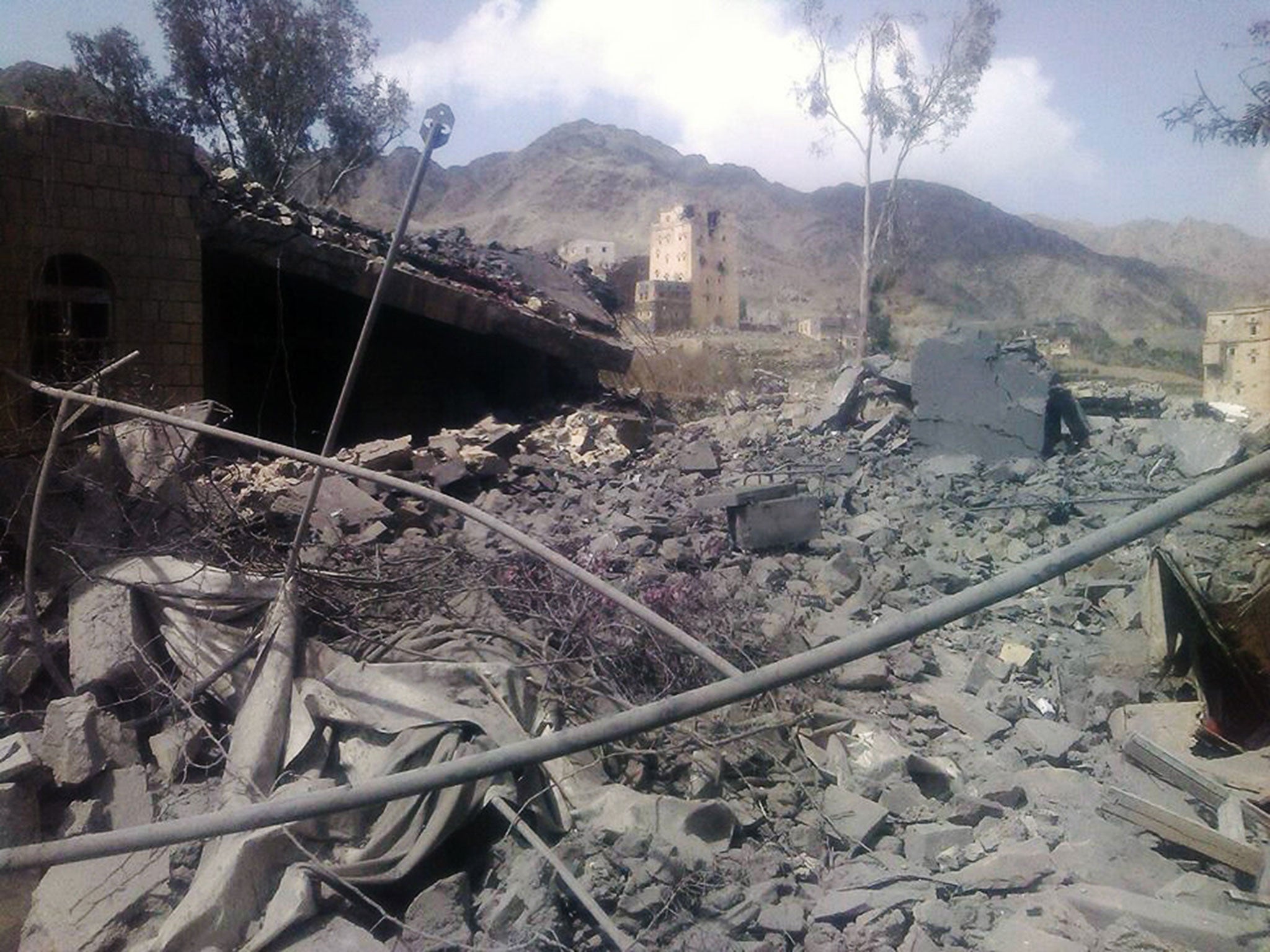Yemen conflict: MSF rejects Saudi Arabia denial over bombing of civilian hospital
A Saudi-led coalition are fighting to support the Yemeni authorities who have lost control of vast areas of the country to Houthi rebels

Médecins Sans Frontières has rejected claims by Saudi Arabia that the Riyadh-led military coalition was not responsible for the bombing of a civilian hospital run by the humanitarian group in Yemen this week.
Abdallah al-Mouallimi – Saudi Arabia’s ambassador to the United Nations – rebuked the organisation’s Secretary-General, Ban Ki-moon, for blaming the attack on the Saudis and their allies.
The medical centre, in the desperately poor Saada province, treated 150 people each week and served 200,000 people in the region. It was destroyed in the attack.
Mr al-Mouallimi insisted an inquiry was needed to determine what had happened.
“We regret the statement that was attributed to the Secretary-General,” he said. “How was the hospital hit or damaged? We do not know and we will have a full and transparent investigation carried out by the Yemeni authorities.”
Saudi forces, along with those of the UAE and others, are fighting to support the Yemeni authorities who have lost control of vast areas of the country to Houthi rebels.
The hospital was in a Houthi-controlled area, and Mr al-Mouallimi argued that rebels have in the past shelled areas under their control, before blaming Saudi-led air strikes.
Mego Terzian, the president of MSF France called for dialogue with the coalition to help ease the growing humanitarian crisis.
But he maintained that the group was in no doubt that the Saudis and their allies were responsible for the bombing.
“The reality is that only the coalition has military planes in the area,” he said.
“My colleagues have seen coalition planes in the area – the coalition is simply the only group that could have carried out this attack.”
He added that the Saudi position had changed during the week and that on Tuesday, on the morning after the attack, Saudi officials had suggested that MSF had given the incorrect GPS coordinates for the hospital.
“Now they are claiming that there was no military activity in the area at all. It is not the case,” he said.
My colleagues have seen coalition planes in the area – the coalition is simply the only group that could have carried out this attack
The Houthi rebels do not have access to warplanes. “This was a civilian area that was controlled by the Houthis,” said Dr Terzian.
Natalie Roberts, who until recently was MSF’s emergency coordinator in Yemen, said that the hospital had almost certainly treated the Houthi war-wounded and that other civilian buildings nearby had been hit by air strikes.
The denials by the Saudis and their partners follow allegations that the coalition has gone back on other assurances not to use cluster bombs.
In April, Human Rights Watch published what it said was evidence of the use of US-made cluster bombs by Saudi forces. A month earlier, days after the Saudi air assaults on Yemen began, Saudi Brigadier General Ahmed al-Assiri said: “We are not using cluster bombs at all.”
As a non-signatory to the 2008 treaty, which outlaws the use of cluster bombs, the Saudis are not prevented from using such weapons.
More than 5,400 people have been killed in the conflict. Aid agencies have warned that thousands of Yemenis face starvation.
Join our commenting forum
Join thought-provoking conversations, follow other Independent readers and see their replies
Comments
Bookmark popover
Removed from bookmarks